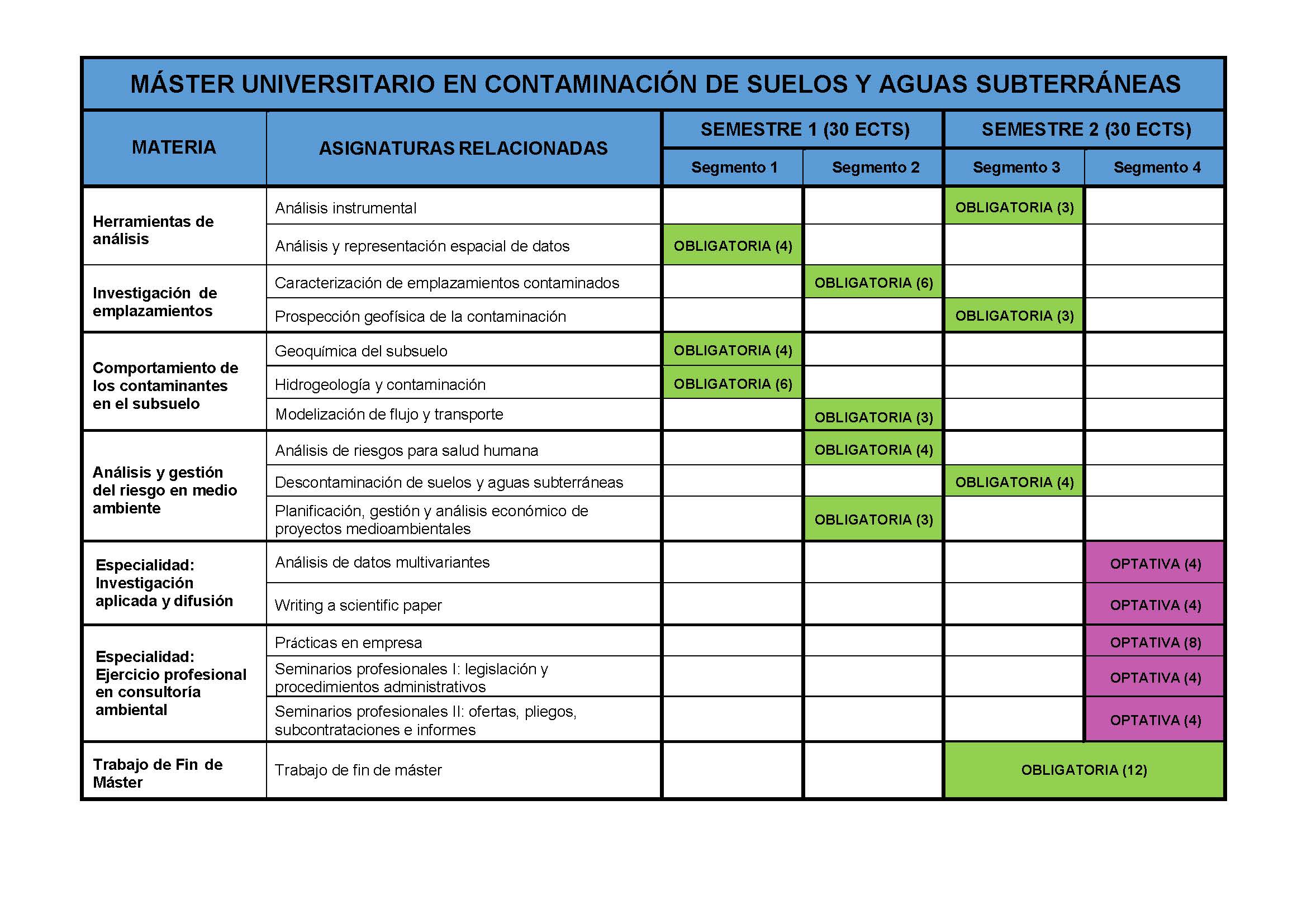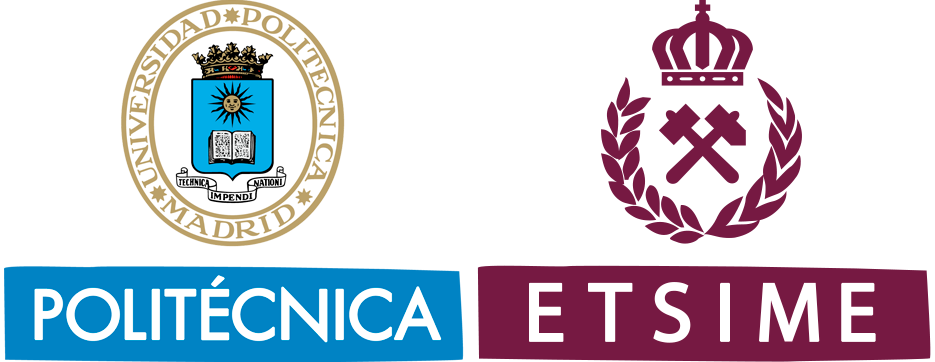Plan de Estudios
El programa de Máster Universitario en Contaminación de Suelos y Aguas Subterráneas requiere la realización satisfactoria de un mínimo de 60 ECTS para la obtención del título, entre los cuales figurarán necesariamente los 12 créditos del Trabajo de Fin de Máster. Los 48 créditos restantes se eligen de la oferta total de 64 ECTS del Máster, dividida en dos partes, una obligatoria, de 40 créditos (excluido el Trabajo de Fin de Máster) y otra optativa, de 24 créditos. En la parte correspondiente a las asignaturas obligatorias se desarrolla propiamente el contenido del Máster, constituyendo la componente mínima del mismo necesaria para obtener la titulación. Los módulos optativos, divididos en dos itinerarios, permiten al alumno profundizar y completar su formación en una de las dos orientaciones del programa, profesional o investigadora.
Estructura del programa:
El programa del Máster se encuentra dividido en seis módulos de materias, cada uno de ellos vinculado a un tipo de competencias diferenciadas entre sí y coherentes dentro de cada módulo. Además, el programa contempla dos itinerarios, en función de las materias optativas elegidas por el alumno: (a) Itinerario de Investigación (b) Itinerario Profesional. El alumno ejerce la optatividad en su elección de itinerario, dentro del cual, las materias que ha de cursar son fijas. La relación de materias y el desglose propuesto de las mismas en asignaturas, se presenta en la siguiente Tabla:

El conjunto de módulos de que consta el Máster Universitario en Contaminación de Suelos y Aguas Subterráneas es el siguiente:
-
Módulo 1: Evaluación Ambiental en Suelos y Aguas Contaminadas: Reúne las materias que dotan al estudiante de las habilidades necesarias para describir y analizar, cualitativa y cuantitativamente, un proceso de contaminación de suelos y/o aguas subterráneas.
-
Módulo 2: Comportamiento de los Contaminantes en el Subsuelo: Agrupa las materias que confieren al estudiante las competencias necesarias para interpretar conceptualmente los procesos de contaminación en suelos y/o aguas subterráneas y realizar estimaciones y predicciones a partir de modelos.
-
Módulo 3: Análisis y gestión del riesgo en medio ambiente: Comprende las materias que aportan al estudiante las competencias necesarias para evaluar procesos de contaminación del medio natural desde la perspectiva del riesgo para la salud humana y los ecosistemas, y para diseñar técnica y económicamente proyectos de gestión de dicho riesgo.
-
Módulo 4: Módulo de Investigación: Aporta al estudiante competencias adyacentes a las contempladas en los tres módulos anteriores, en función de la orientación o itinerario que desee seguir el alumno. El Módulo 4, específicamente, abre fronteras de investigación complementarias a las abarcadas en las materias nucleares del Máster.
-
Módulo 5: Módulo Profesional: Aporta al estudiante competencias adyacentes a las contempladas en los tres módulos obligatorios, en función de la orientación o itinerario que desee seguir el alumno. El Módulo 5, específicamente, permite profundizar en los aspectos de diseño, ejecución y gestión de proyectos en un entorno profesional.
-
Módulo 6: Trabajo de Fin de Máster: Dota a los estudiantes de las competencias necesarias para llevar a cabo un proyecto de investigación científica o de carácter profesional en el ámbito de la contaminación de suelos y aguas subterráneas, desde el análisis crítico del estado del arte, hasta la presentación y divulgación de los resultados obtenidos.
El Módulo 5, Módulo Profesional, contempla la posibilidad de realizar Prácticas en Empresa con carácter optativo. Aquellos alumnos que, habiendo elegido el itinerario profesional, no estén en disposición de realizar dichas prácticas, podrán cursar, alternativamente, dos seminarios eminentemente aplicados, con colaboración de técnicos de consultoras nacionales, en los que replicarán las tareas y alcanzarán las competencias asociadas a las prácticas en empresa.


